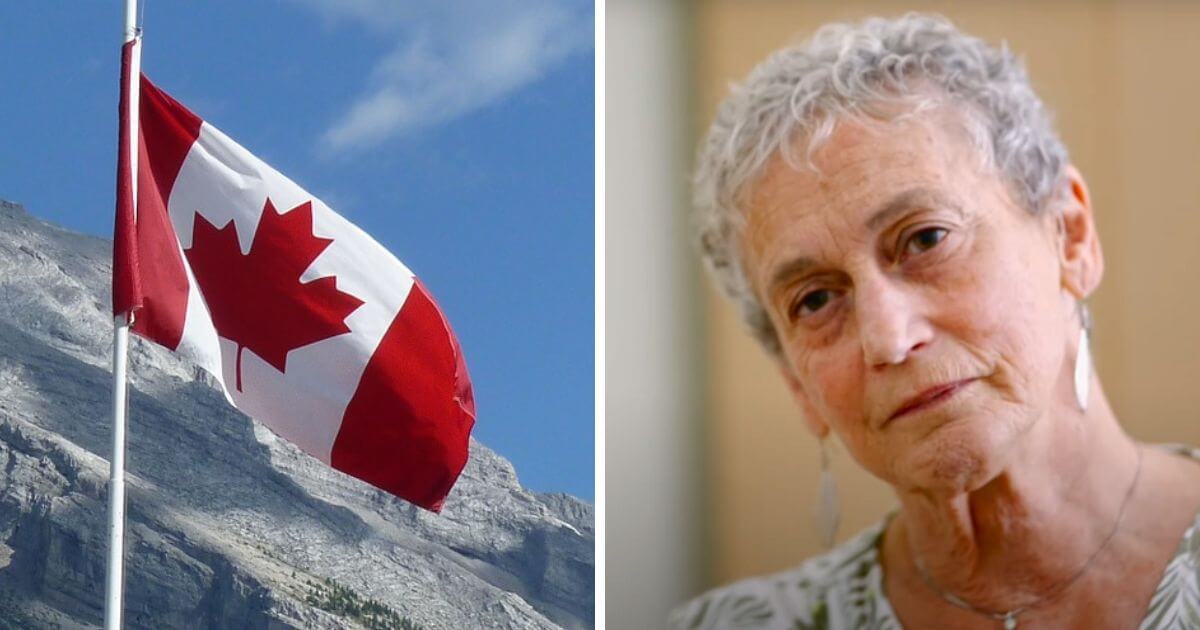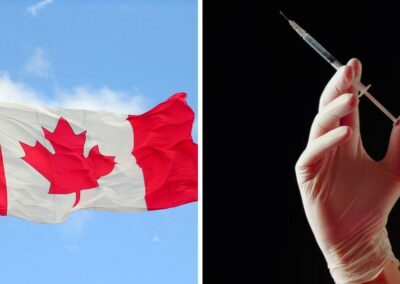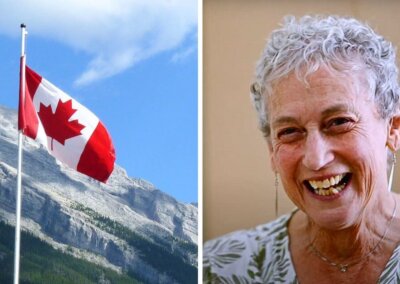A judge has blocked controversial euthanasia doctor, Ellen Wiebe, from euthanising a woman with bipolar disorder in a last-minute decision following an application for an injunction by the woman’s partner.
The injunction, granted by British Columbia judge Justice Simon R. Coval, prevents doctors from approving euthanasia or assisted suicide for the unnamed 53-year-old woman from Alberta for Canada for 30 days. The decision came the day before the woman was supposed to be euthanised.
In the claim, the woman’s partner argued that the woman’s condition does not make her eligible for euthanasia. It states “Her condition is one of mental illness or disability, rather than a physical malady, and because it is not an ‘irremediable’ medical condition”.
The woman, who has bipolar disorder, was unable to find a doctor who would approve her for euthanasia until she discovered Vancouver doctor Ellen Wiebe who boasts about having ended the lives of over 400 of her patients via euthanasia.
The woman had admitted herself to hospital after an “intense manic phase”, after which she underwent treatment which led to “negative side effects”. After conducting her own research, she concluded she had “akathisia“, a condition which the Court characterises as “restlessness, terror, agitation, inability to sit still and burning skin sensations”. The Court heard that akathisia is treatable but Dr Wiebe approved her for euthanasia regardless.
Euthanasia and assisted suicide on the grounds of mental health alone
While a judge prevented euthanasia from being administered in this particular case, it is a temporary injunction, and in September this year, euthanasia lobby group, Dying with Dignity Canada lodged a court appeal, arguing that it is discriminatory towards people with mental illness that those suffering physically can access euthanasia and assisted suicide but those with mental illnesses cannot.
In their case, Dying with Dignity is accusing the Government of breaching section 7 of the Canadian Charter of Rights and Freedom, which states that each Canadian citizen has the “right to life, liberty and security“. It also accuses the government of breaching section 15, that citizens should not be discriminated against based on “mental or physical disability“. Its press release argues that the exclusion of people with mental illnesses from assisted suicide and euthanasia “reinforces the stigma and historic prejudice against people with mental illness”.
Euthanasia and assisted suicide are currently unavailable on mental health grounds alone, but legislation was introduced in February 2024 so that euthanasia and assisted suicide would become legal for this reason in March 2027.
In 2022, the New Atlantis journal obtained video recordings and accompanying presentations of several meetings of doctors and medical professionals who administer euthanasia in Canada, which took place between 2020 and 2022. In one of these recordings, Dr Wiebe, who has personally administered euthanasia to over 400 patients, drew attention to the phenomenon of ‘doctor-shopping’ where, if one doctor judges that a person is not eligible for euthanasia, the person can keep searching for a doctor who will approve the request.
In particular, Wiebe discussed the case of one man who was not deemed eligible for euthanasia since he was judged not to have the “capacity to make informed decisions about his own personal health”. However, this same man was put into contact with Wiebe who decided that this man did fulfil the criteria.
“And he flew all by himself to Vancouver”, she said. “I picked him up at the airport, […] brought him to my clinic and [I euthanised him]”.
She also described her role in administering euthanasia as “the most rewarding work we’ve ever done”.
Reports have emerged of poor and vulnerable Canadians choosing assisted suicide and euthanasia under Medical Assistance in Dying (MAiD) because of socioeconomic circumstances.
The first official report on euthanasia and assisted suicide in Ontario, Canada: the ‘MAiD Death Review Committee Report’, in which 16 experts from various disciplines reviewed MAiD deaths in Ontario, found that vulnerable people face “undue influence” and “potential coercion”.
Spokesperson for Right To Life UK, Catherine Robinson, said “While the Court intervened in this case, it is alarming that this case went so far and that the injunction to prevent euthanising this lady is only in effect for 30 days. Rather than helping this woman to recover from her apparently treatable condition, she was effectively affirmed in her despair and told her life was not worth living by Dr Wiebe when she approved the woman for euthanasia or assisted suicide”.
“In the run-up to the vote on the assisted suicide Bill, our MPs should take note of how what seemed to be a restrictive law in Canada has rapidly widened and will soon make people who are experiencing mental health issues eligible for euthanasia and assisted suicide too”.











